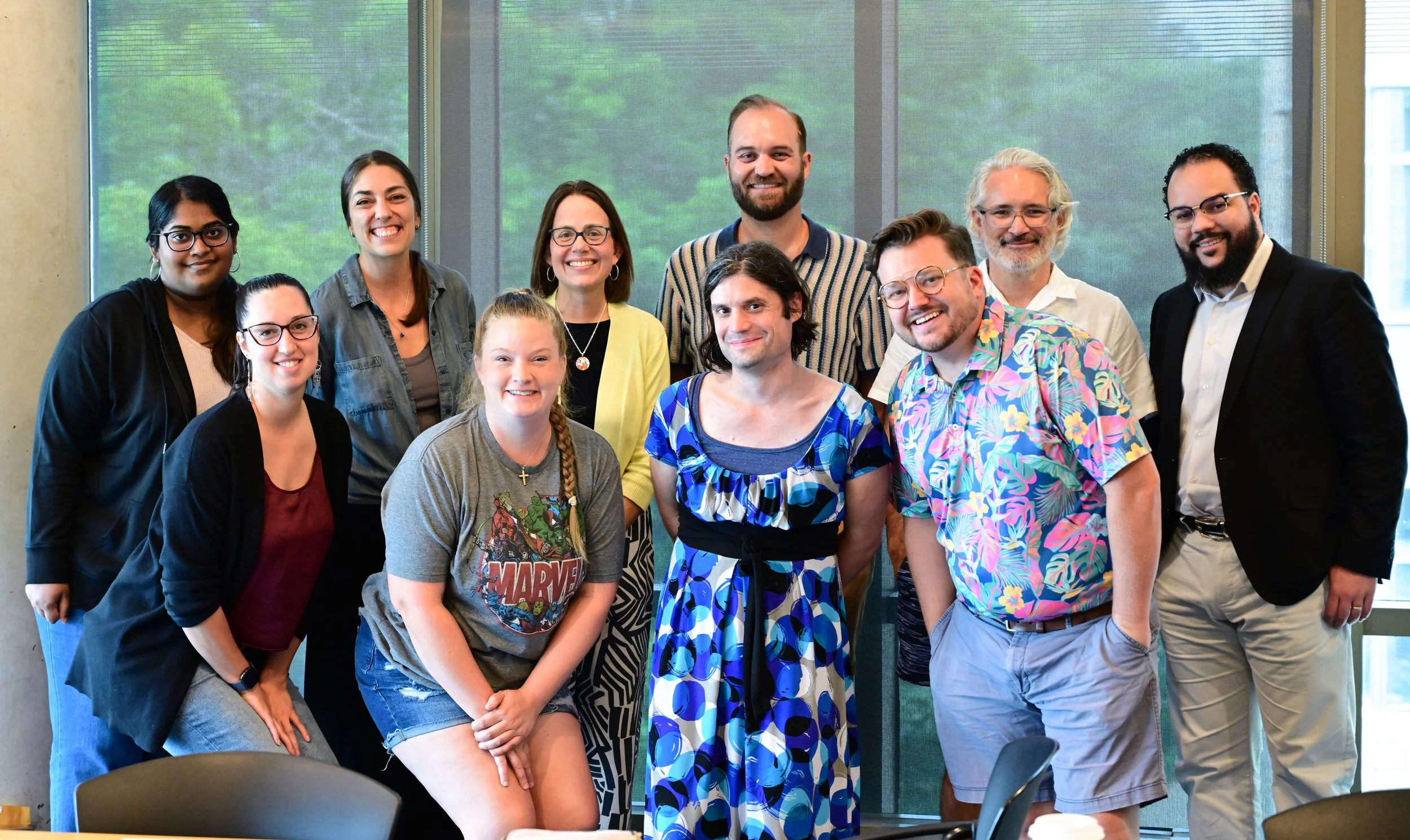A living faith demands
A Living Catechism
This project was created as a collaboration between Church Anew (a ministry of St. Andrew Lutheran Church, Eden Prairie, MN), and The Lutheran Center for Faith, Values, and Community at St. Olaf College.
It was born from the idea of revamping the way we communicate the best of Lutheran belief and practice for the 21st century. We wondered if there was a way to introduce a new catechism, not replacing Luther’s catechisms, but adding one that speaks to our modern lives in a way that makes our churches feel alive and thriving.
The resources of this project are being created to meet people on their level so that everyone can be engaged with a guide that fits the unique challenges of their lives.
Reformation remembers how often faithful dissent & brave wonder have been confused with harm and heresy.
rev. meta herrick carlson
The 7 Principles of A Living Catechism
The concept of a Living Catechism flows from the fundamental idea that as God’s beloved people, we are always discerning, always reforming, always leaning into what it means to be the people of God in each unique time and place. A Living Catechism asks how do we articulate the core understandings of a Lutheran perspective and take seriously the complex realities of life – today. Martin Luther was responsive to the particularities of life in his time, while seeking to be faithful to the Christian Scriptures. A Living Catechism seeks to do the same in our time – be faithful to the Christian Scriptures and be responsive to the unique realities of our time and place.
These concepts are based on a paper that Rev. Dr. Guy Irwin presented at the Luther Congress in 2022.
Living Catechism Teaching 1: God becomes human for us in Jesus Christ
The God who creates all that is takes on life and death in the person of Jesus. This God who becomes flesh understands our loves and limits, and bridges the gap between God and creation through radical acts of love in Christ’s living, dying, and living again. God’s costly love for creation compels us to embrace Christ’s compassion and care for all of life.
John 1: 1-5
Living Catechism Teaching 2: God meets us in bread, wine, and water
God’s presence is entangled in, with, and under simple elements of daily life. Jesus sets a table where God forgives us and feeds us with love eternal. In water and promise, God brings us to new life and fills our lungs with gifts for the world. Through these ordinary things - water, bread, and wine - God promises to always be for us. We can therefore delight in God’s goodness in any moment, seeing God in a sunset, the laugh of a child, or the warmth of a fire, trusting we can always return to bread, wine, and water, where God will be waiting for us.
Exodus 16, Romans 6:1-15
Living Catechism Teaching 3: God feels our pain and suffering
God becoming human in Jesus means God is deeply familiar with the pain and suffering of body, mind, and spirit. Jesus’ experiences of loneliness, sorrow, and betrayal alongside the physical pain of violence and death reveal that God suffers with and for us and all of God’s beloved creation. And it is in resurrection that God declares that divine love promises to transform all that threatens to destroy that which God created.
2 Corinthians 1:3-4
Living Catechism Teaching 4: God delights in our goodness and judges sin
God announces the goodness of all of creation. God celebrates the gifts the Holy Spirit has given each of us to serve our neighbor and the world in need. Yet there is evil in the world, which God condemns and works against. Sometimes we are a part of that evil, caught in webs beyond individual choices of right and wrong. Sometimes we are recipients of that evil, through actions of others or networks in the world. God judges sin, but always in service of love for all of God’s good creatures.
Genesis 1:1-2:2
Living Catechism Teaching 5: God speaks to us through Scripture and Spirit
God speaks to us through ancient stories, evocative poetry, fiery prophecy, and intimate correspondence. The Bible has been handed down from generation to generation, carefully translated and boldly interpreted, so that we might open it and hear good news. And God is still speaking, as we gather together to ponder these stories anew, encounter wisdom from traditions different from our own, or wrestle with a message preached into contemporary life.
Revelation 2:7, John 1:14, Isaiah 55:11
Living Catechism Teaching 6: God compels us toward mercy
God’s merciful nature is gracious rather than preoccupied with punishment. Jesus embodies God’s mercy through compassion toward all who suffer and forgiveness toward those who cause suffering. At the same time, God’s mercy exists alongside God’s justice and calls for accountability and repentance for those who live by revenge and retribution. Created in the image of a merciful God, we are beckoned toward acts of mercy and justice for ourselves, for others, and for all of God’s creation.
Luke 15:11-32, Matthew 9:13, Exodus 34:6-7
Living Catechism Teaching 7: God loves us eternally
Through the resurrection of Jesus, God shows us that death does not have the final word. God promises to be with us not only in this life but in the life to come. God promises a new heaven and a new earth where there’s no more crying, no more dying, only life, only love. God’s promise to love us eternally is not just about the future but compels us to live as if love extends beyond the bounds of death.
Revelation 21:1-5
Resources for CHILDREN
Learning Alongside Children
This resource uses the principles from a Living Catechism to invite Christians to think about how their faith commitments empower them to address critical concerns in our world. This resource examines creation care and climate change, but could be used as a model for any critical concern in our world. Developed by Peter Schattauer.
VBS Coloring Book
This resource uses storytelling to pedagogically engage the Living Catechism principles. Storytelling is used as the pedagogical tool because of the ways story has been used to transmit faith throughout history. Developed by Char Cox.
Resources for TEENS & CONFIRMATION
Critical Concerns: Creation Care and Climate Change
This resource uses the principles from a Living Catechism to invite Christian to think about how their faith commitments empower them to address critical concerns in our world. This resource examines creation care and climate change, but could be used as a model for any critical concern in our world. Developed by Peter Schattauer.
Storytelling as pedagogy
This resource uses storytelling to pedagogically engage the Living Catechism principles. Storytelling is used as the pedagogical tool because of the ways story has been used to transmit faith throughout history. Developed by Char Cox.
Spiritual development group
This experiment uses the seven principles of A Living Catechism to engage participants in incorporating spiritual practices into their lives. Developed by Keerthana Babu.
My Living Faith exercise
An exercise that invites participants to consider their own experiences of their life of faith and how those relate to Living Catechism principles. Developed by Dr. Deanna Thompson.
Resources FOR ONLINE DISCUSSION
Doubts & Discord
This experiment invites people to engage with Living Catechism principles in an online forum with a moderator. Developed by Linnea Peterson.














